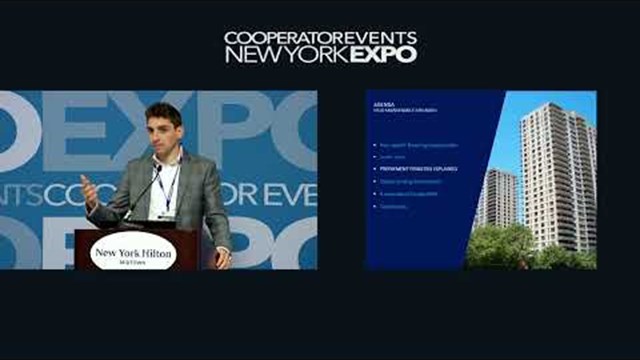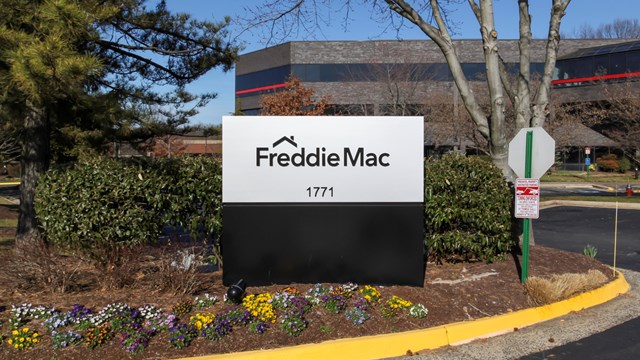As we’ve reported in previous articles, special assessments are not the only tool condo associations and HOAs have to finance common area improvements and major repairs when needed; there are also loans available in the marketplace to help communities pay for big-ticket projects.
Larry Kirschner is a partner at Arch Capital Solutions, a national provider of condo and HOA loans based in Tampa, Florida. Kirschner has supplied The Cooperator with the following case study of an actual loan done for a condominium association in Chicago:
A Case Study
“A 1920s era suburban Chicago condo building was facing a bit of a minor crisis,” explained Kirschner. “The board of the 35-unit association had recently taken out a loan for some much-needed exterior repairs. Unfortunately, the prior board had been a bit short-sighted with the loan request, because now the association was in need of a major roof repair as well as a major boiler replacement. The bank that issued the loan had required a cash collateral - meaning they were requiring the association to essentially match an increased loan amount with a like amount of collateral. Understandably, the board felt this requirement defeated the purpose of requesting a larger loan.”
The association had been paying just under $2,000 per month in loan repayment, which came out to around $55 per unit for the 35 owners, explained Kirschner. The balance on the loan at this time was $100,000, but the association needed an additional $250,000 in order to complete the roof and boiler related work - and there appeared to be little support among residents for imposing a $8,300 assessment to get the much-needed work done. The board began exploring other options, but quickly learned that no lender would consider a loan to the association while the original loan was outstanding. Kirschner helped them structure an alternative financing solution.
A Five-Step Process
Needless to say, applying for a large loan on behalf of a multifamily building community can be a lengthy and sometimes complicated process - there are a lot of i's to dot and t's to cross in to keep things on-track and moving forward. That's why it's so helpful for a board to have sound professional advice as members decide the best course forward for their community. In the case of our Chicago example, the loan process moved through five distinct steps or phases, which are fairly standard from region to region:
Step 1: Identify the Scope of the Project(s)
The Chicago board grouped their projects into 4 ‘buckets’:
Total Cost | Cost per Unit | |
Refinance existing debt | 100,000 | 3,333 |
Roof replacement | 125,000 | 4,167 |
Boiler replacement | 100,000 | 3,333 |
Contingency | 25,000 | 833 |
Totals | 350,000 | 11,667 |
Step 2: Identify Financing Alternatives
Priority | Financing | Bank Loan | |
Refinance existing debt | High | N/A | Yes |
Roof replacement | High | Yes (with 10% interest rate from the roofing contractor) | Yes |
Boiler replacement | High | No | Yes |
Step 3: Seek Legal Counsel
Since the association already had a loan, the board knew they had the authority to borrow. However, they reached out to legal advisors to insure they had the authority to increase their debt from $150k to $350k.
Step 4: Communicate With Unit Owners
Kirschner prepared various financing scenarios for the board which they presented to the ownership:
Per-unit monthly payments | ||||
Total Cost | Cost p/Unit | 10-year term | 15-year term | |
Refinance existing debt | $100,000 | $3,333 | $23 | $14 |
Roof replacement | $125,000 | $4,167 | $28 | $17 |
Boiler replacement | $100,000 | $3,333 | $23 | $14 |
Contingency | $25,000 | $833 | $6 | $3 |
Totals | $350,000 | $11,667 | $80 | $48 |
Two options were ultimately considered: Owners could enter into a 10-year fixed rate loan and increase their payments from $55 to $80, or accept a 15-year loan and actually reduce their monthly payments to $48.
Step 5: Apply for the Loan
Kirschner prepared an executive summary for lenders to use in assessing their interest in financing the project, and assembled a complete loan package that included the following:
Articles of incorporation
Bylaws and amendments
Insurance and board information
The most recent reserve study
Scope of the project
Roster of unit owners
Current and last 3 years’ worth of financials
Last 3 tax returns
Once interested lenders were identified, the board met to consider the terms that had been proposed by each. After choosing a lender, the underwriting process took several months. The unit owners overwhelmingly voted to apply for the longer-term loan, but to maintain their $55 monthly payments. They opted for the remaining $7 per unit to go into their reserve fund. The bank’s counsel prepared closing documents, which were in turn reviewed by the association’s counsel before the loan could actually close and fund.
Once the repairs were done, the market value of apartments in the building immediately jumped over 25%. One unit’s value went from $200,00 to $250,000 virtually overnight. Their investment of $8,640 ($48 monthly dues over a 15-year period) had yielded an impressive 578% return. Not to mention of course that the residents were no longer concerned about roof leaks or cold winters!
The moral of the story here is that with solid financial and legal advice, and administrative transparency and respect for residents’ opinions and perspective, boards can absolutely make sound money decisions that not only ensure the functionality of their building and community, but even increase the value of the property they govern.










Comments
Leave a Comment